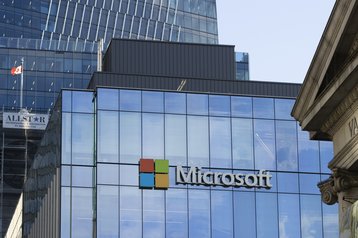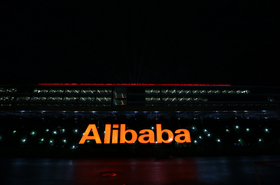Microsoft has withdrawn from data center leasing agreements worth 200MW, a report claims.
The report, written by analysts Michael Elias, Cooper Belanger and Gregory Williams, said that TD Cowen's channel checks had found Microsoft has "1) canceled leases in the US, totaling 'a couple of hundred MWs' with at least two private data center operators, 2) has pulled back on the conversion of '500’s' to leases, and 3) has re-allocated a considerable portion of its international spend to the US."
TD Cowen suggests that Microsoft is using facility/power delays as a justification for this, comparing it to the 2022 tactic employed by Meta following its cancelation of multiple data center leases related to the metaverse.
The report adds that Microsoft has also pulled back on converting negotiated and signed Statement of Qualifications, or 500’s, which are the precursor to a data center lease, into signed leases. It notes that it cannot confirm if this is a delay to conversion or outright termination.
The brokerage also said that its channel checks found that Microsoft was reallocating a "considerable portion" of its international spend to the US, which "suggests to us a material slowdown in international leasing."
The report concluded: "Microsoft was the most active lessee of capacity in 2023 and 1H24, at which time it was procuring capacity relative to a capacity forecast that contemplated incremental OpenAI workloads.
"However, as we believe is indicated by its decision to pause construction on a data center in Wisconsin -which our prior channel checks indicated was to support OpenAI - there is capacity that it has likely procured, particularly in areas where capacity is not fungible to cloud, where the company may have excess data center capacity relative to its new forecast." TD Cowen notes that this is its "intepretation" of the situation, and is "subject to change."
Not all analysts have the same take on the matter, however.
“To me this all looks and sounds like business as usual,” Mizuho Securities analyst Jordan Klein said in a note. “A company this large and with $80 billion of annual spend has the right to move in and out of data center leases, many of which were never officially signed.”
Klein further suggested that, as many hyperscalers use a mix of owned and leased land, "tweaking" of plans is to be expected.
In January of this year, Microsoft announced plans to spend $80bn on AI data centers in 2025.
During its most recent earnings call, CFO Amy Hood revealed that the company was working from a "pretty capacity-constrained place," adding that they have been "short [of] power and space."
Last week CEO Satya Nadella said in an interview that "there will be an overbuild" of AI infrastructure, and said his company will be "leasing a lot of capacity in ’27, ’28.”
Microsoft declined to comment to Bloomberg on TD Cowen's note, but a spokesperson said regarding investment: "Thanks to the significant investments we have made up to this point, we are well positioned to meet our current and increasing customer demand. Last year alone, we added more capacity than any prior year in history. While we may strategically pace or adjust our infrastructure in some areas, we will continue to grow strongly in all regions. This allows us to invest and allocate resources to growth areas for our future. Our plans to spend over $80bn on infrastructure this FY remains on track as we continue to grow at a record pace to meet customer demand."
DCD reached out to Microsoft for further information, but received the same statement.
This year has also seen Microsoft lose its position as OpenAI's exclusive cloud provider following the $500bn Stargate data center initiative announced by the AI company.
Despite this, Microsoft has retained the "right of first refusal" on new capacity and, "to further support OpenAI, Microsoft has approved OpenAI’s ability to build additional capacity, primarily for research and training of models."
Speaking on this during the earnings call, Nadella said: "We remain very happy with the partnership with OpenAI... they've committed in a big way to Azure," adding, "Their success is our success."







